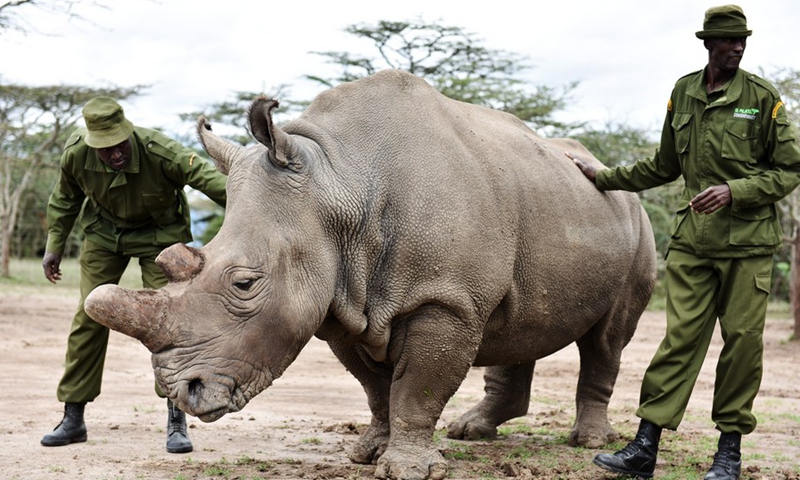In an unprecedented conservation effort, seventy southern white rhinoceroses have been successfully relocated from South Africa to Rwanda, completing a grueling 3,400-kilometer journey by road and air. This landmark operation – the largest single-species aerial translocation in African history – aims to establish a new breeding stronghold for the vulnerable animals in Akagera National Park.
Logistical Marvel
The rhinos were moved in two carefully coordinated batches of 35, with each group undergoing a multi-phase journey. After being transported in specialized steel crates via truck from South Africa's Munywana Conservancy to Durban's King Shaka International Airport, the massive mammals were loaded by crane into a Boeing 747 cargo plane. Following flights to Kigali, the rhinos completed their voyage by road to Akagera, central Africa's largest protected wetland ecosystem.
"This establishes a foundation for sustainable rhino populations that will benefit biodiversity across the continent," stated the Rwanda Development Board, which coordinated the mission with conservation group African Parks.
Conservation Imperative
The translocation forms part of an ambitious initiative to rewild over 2,000 southern white rhinos across Africa in coming years. Once abundant throughout sub-Saharan Africa, these majestic creatures faced near-extinction during colonial-era hunting sprees. Modern poaching remains critical threat, with the International Rhino Foundation reporting a 4% increase in African rhino poaching incidents during 2022-2023, claiming at least 586 animals.
Currently classified as "near threatened" by the International Union for Conservation of Nature (IUCN), approximately 17,000 southern white rhinos remain in the wild – a fragile recovery from historical lows. Their critically endangered northern counterparts number fewer than two dozen worldwide.
New Beginnings
Veterinary teams are closely monitoring the newly arrived rhinos in Akagera National Park, managing potential relocation stress and ensuring successful adaptation. Rwanda previously received eastern black rhinos in 2017 and 2019, with both populations thriving under enhanced anti-poaching measures.
Akagera's varied terrain, spanning savannah, woodland and wetland habitats, provides an ideal sanctuary. The park's security protocols include canine units, helicopter surveillance, and community engagement programs that have dramatically reduced poaching incidents since 2010.
Future of Rewilding
This translocation represents a paradigm shift in continental conservation strategy. By establishing geographically dispersed populations, conservationists aim to create climate-resilient genetic reservoirs for the species. African Parks CEO Peter Fearnhead emphasized: "Securing protected habitats across political boundaries is essential for long-term species survival."
The successful operation ignites hope for other endangered megafauna, demonstrating that complex international wildlife transfers can be executed effectively. With southern white rhinos now roaming Rwandan savannahs for the first time in decades, conservationists are cautiously optimistic about creating a sustainable future for these prehistoric giants.







Comments (0)
Leave a Comment
Be the first to comment on this article!